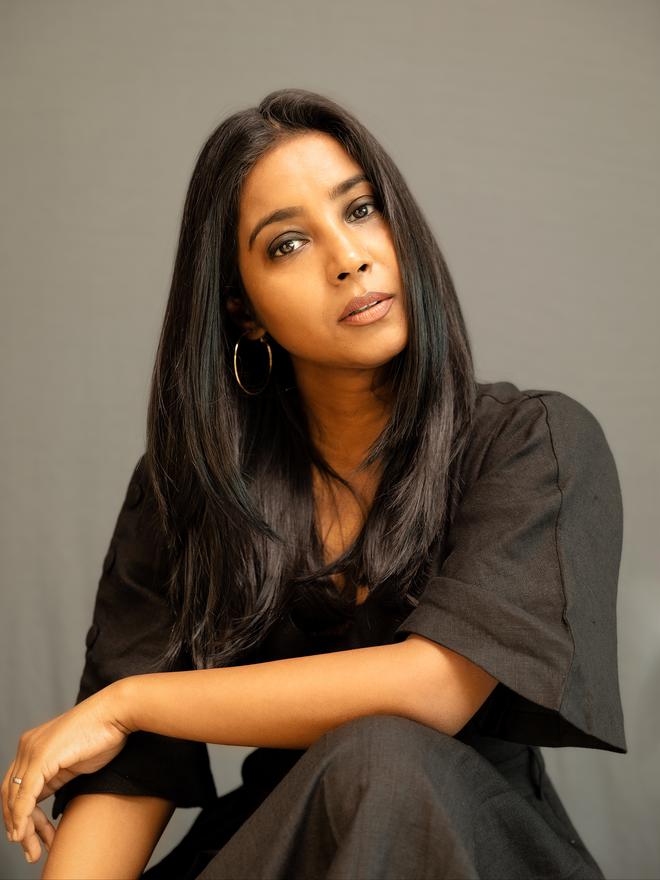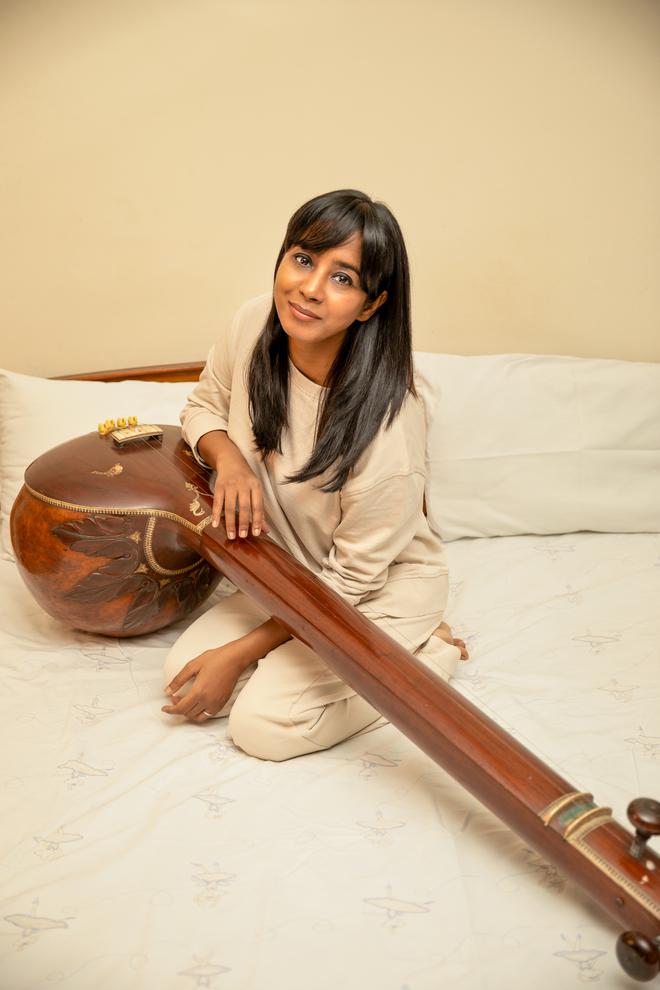“It has been one of my best shows. My band felt the same. The sound was great and the audience was just wonderful.” That was singer Shilpa Rao gushing about her show in Thiruvananthapuram, for Cult A Way, the techno-cultural festival of Sree Chitra Thirunal College of Engineering. She has posted a video on her social media page that shows the crowd at the packed Nishagandhi open-air auditorium singing along with her as she crooned her title track from Kalank.
Her sombre, yet soulful voice, has struck a chord with music lovers ever since she started playback singing 16 years ago. The singer’s road to fame has been her hits such as ‘Besharam rang’ (Pathan), ‘Ghunghroo’ (War), ‘Bulleya’ (Ae Dil Hain Mushkil), ‘Subanallah’ (Yeh Jawaani Hai Deewani) and ‘Khuda jaane’ (Bachnaa Ae Haseeno), to name a few.
The interview kicked off with a mention about her Kerala connection. “My husband, Ritesh Krishnan, is from here and I love a lot of things about the State — the greenery, the monsoon, the music...” she goes on.
One with nature
Perhaps because nature has been integral to her growing up years in Jamshedpur. “My parents gave me and my brother, Anurag, a simple and nice childhood. We lived in a township amidst a lush green cover. There was a beautiful connect with Nature, which I still have. With no phones to distract us, we had enough time to think, see and feel what is happening around and eat the seasonal fruits and vegetables. My father loved mangoes and he would go around picking mangoes. He used to take me along and that was when he would teach me music,” the singer remembers.
She adds that her singing has been shaped by her roots. “Sur lagana (to pitch) is the most important thing for a singer. When you sing under a mango tree or by the beach or a river bank or the mountains, it is so much easy to pitch correctly because you are surrounded by natural sounds. That is not the case in a city where you are surrounded by noise from traffic, construction work etc.”
Although music was a constant in her growing-up years, she never planned to become a musician while living in Jamshedpur. “I preferred listening to all kinds of music to singing. The decision to become a musician happened when I came to Mumbai and happened to meet Hariji (singer Hariharan).”

She started by singing jingles and entered the film industry with the song ‘Tore naina’ in Anwar (2007), composed by Mithoon. There has been no looking back since then and she has worked with almost all the leading composers, including AR Rahman, Shankar-Ehsaan-Loy, Amit Trivedi, Vishal-Shekhar, Salim-Sulaiman and Sachin-Jigar. While she worked with Ilaiyaraaja for the Hindi film Paa (‘Mudhi mudhi’), she sang in Tamil for Yuvan Shankar Raja in Naan Mahaan Alla. She has also sung in one Malayalam film, Puthiya Mugham (‘Rahasyamaayi’), with the late KK. “That was long ago. I miss KK...,” she says.
Shilpa emphasises that she would love to sing for any one, even a new composer, “if the song is good. All someone has to do is just send me a song and if I like it, I will sing it. It is as simple as that.”
Shilpa maintains that struggles are part of the journey of every playback singer. “People think that after the initial struggle, the rest is a big joy ride. One has to struggle to keep up the good work. It is supposed to be like that. In music, changes are a constant. The best way to deal with it is to keep learning and evolving to improve your work,” she explains.
Focus on training
Reflecting on how new-age musicians have umpteen platforms to get themselves heard and seen, Shilpa observes that training is extremely important. “It gives you the vocabulary to do your thing. When you listen to the greats and get inspired, it will help you once you figure out your style. And don’t restrict yourself to Indian music,” she says, adding that what she has learnt goes into every song that she sings.

“It is a misconception that we don’t use classical training in film music. But be it ‘Tere hawaale’ (Laal Singh Chaddha) or ‘Besharam rang’, I have used ghazal techniques in them. That’s why I tell aspiring singers to keep learning music. It will change the way they look at music, that is the guarantee that I can give you.”
She still learns from Hariharan whenever she can. “We sit and practise. He keeps telling me that we are students of music for life. He takes so much effort and practises regularly,” she adds.
Ghazal has been a genre close to her heart and Mehdi Hassan is a legend she looks up to. “I love his approach to music, the way he expresses through music, the weight he gives to poetry, his attention to detail in each line, thus doing justice to what the poet has written.” His song, ‘Gulon mein rang bhare’ has been her go-to song.
Currently, she is hooked to ‘Cherathukal’ composed by Sushin Shyam for Kumbalangi Nights. “I loved the movie and the music. This track has been on repeat mode when we were on our Australian tour recently.”
Before signing off, I ask her about the actor she wishes to sing for. “Tabu. She is such a charismatic actor and human being...I would love to be her voice one day.”







